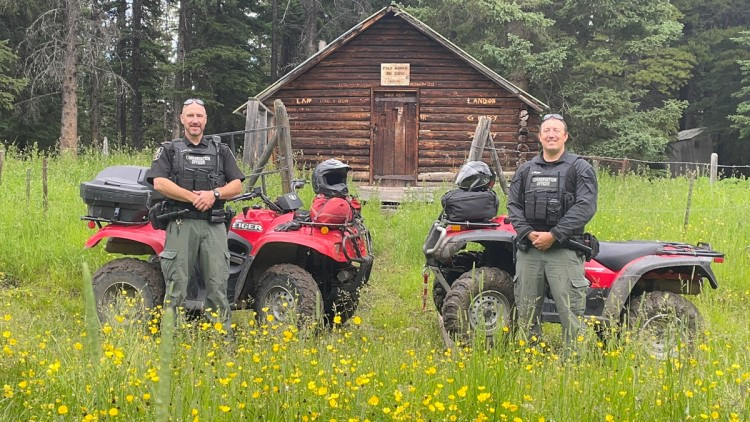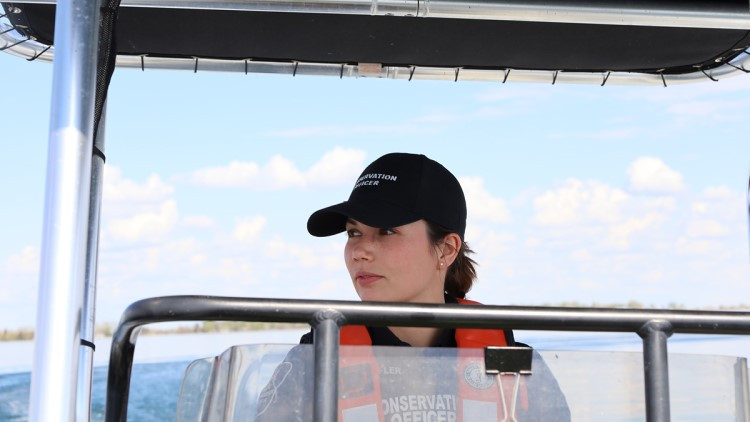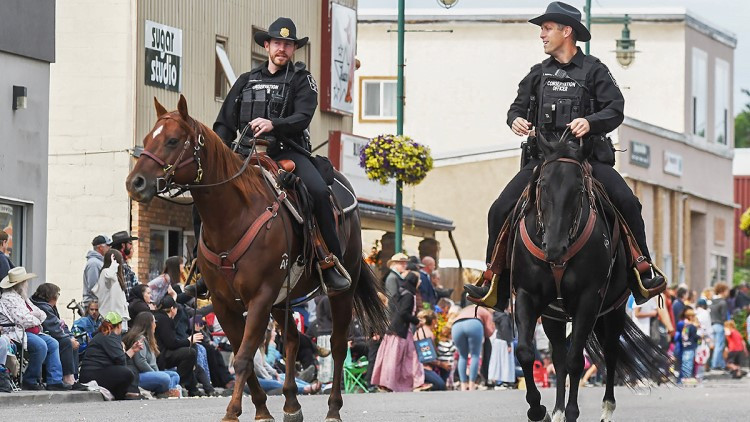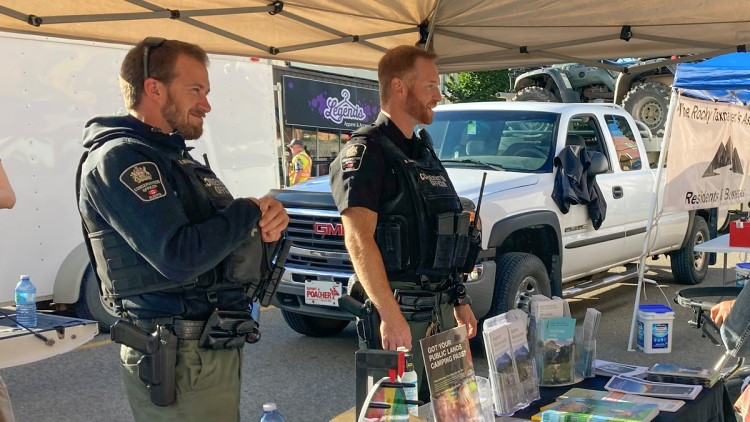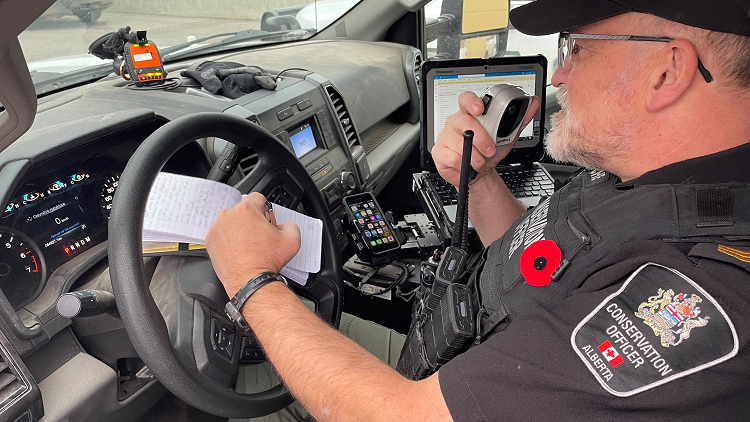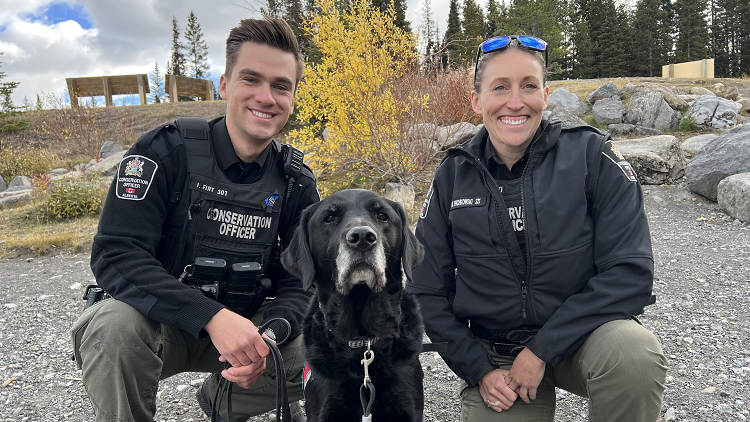Government mail service may be affected by the Canada Post labour disruption. Learn about how critical government mail will be handled.
Overview
Conservation officers in Alberta
Conservation officers are armed peace officers who have the authority to enforce provincial and federal legislation (including Criminal Code) aimed at the conservation and protection of Alberta’s natural resources and Crown lands. All officers adhere to Alberta Association of Chiefs of Police and Alberta Peace Officer Program standards.
Conservation officers often partner with other government staff, law enforcement agencies, First Nation communities and Métis settlements, and community groups to help promote responsible recreation activities.
What we do
Conservation officers are an integral part of the communities where they live and work. Officers foster the safe, sustainable, and lawful use of natural resources and Crown lands, including our provincial parks system, public lands, flora and fauna.
Conservation officers at work
Watch these videos about the work of a conservation officer:
Exploring a winter patrol with a conservation officer.
Connecting with anglers while on patrol at Long Lake.
Ensuring backcountry recreational opportunities are enjoyed safely and responsibly.
Patrolling Wabamun Lake to keep boaters safe on the water.
Recruitment and eligibility
The Crown Land Enforcement Branch typically recruits annually in the Conservation Officer Service. However, this may change based on operational needs.
The recruitment process to become a conservation officer is typically a 3- to 4-month process. Those interested in applying should familiarize themselves with the requirements and the process:
How to apply
Conservation officer opportunities will be posted on the Government of Alberta job board.
The Crown Land Enforcement Branch employs civilian staff within the Program Support Section and the Regulatory Audit and Investigation Service. Opportunities for these positions are posted on the Government of Alberta job board when available.
- Learn more about jobs with the Alberta Public Service
Application requirements
When applying for a conservation officer opportunity, applicants must provide:
• resume and cover letter
• copy of driver’s licence (minimum class 5)
• valid first aid with CPR (child, adult, infant)
• defensive driving training certificate (within last 3 years)
• driver’s abstract – minimum 3 years (within last 6 months)
Note: We do not have a deferral program where unsuccessful applicants are restricted on reapplying for future opportunities.
On-the-job training
The first 12 months of a new conservation officer’s employment includes the following training stages:
Salary and benefits
Crown Land Enforcement Branch offers competitive salaries and comprehensive benefit packages. Conservation officer salaries are currently under review.
Contact
Connect with the Crown Land Enforcement Branch for more information on how to become a conservation officer:
Email: [email protected]
Connect with us for general information about Crown land and to report public safety incidents, illegal activity and enforcement concerns:
